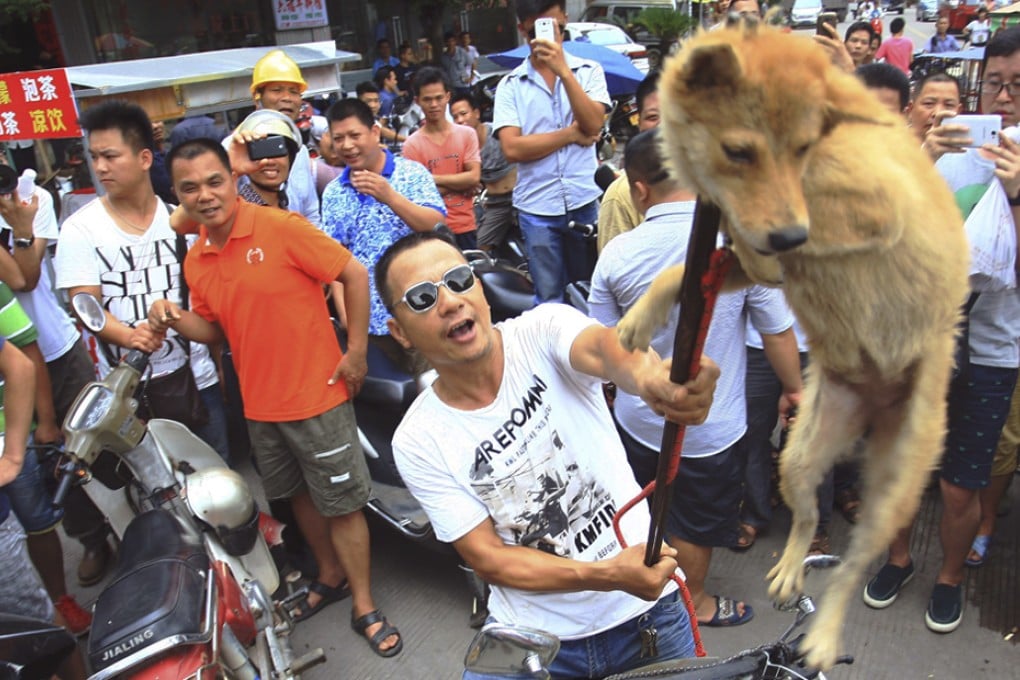Dog-eating festival loses its bite as animal rights activists step in
The roadside vendors were gone and restaurant trade down as officials sought to down play summer solstice event with canine meat on menu

The influx of hundreds of animal rights activists and dog lovers to Yulin, Guangxi, during the past month appeared to have an impact on the city's much-criticised dog-eating festival.
Consumption of dog meat at Yulin's restaurants is believed to have decreased significantly from last year, local restaurants and market operators say.
The run-up to the festival saw a series of confrontations between locals and animal right activists. On Friday night, more than 100 restaurant owners, residents and dog traders surrounded four animal right activists for at least an hour. The activists had to call the police to take them away as no taxi would carry them.
At midnight on Friday, the eve of the festival, activists went around the city to search slaughterhouses that they expected would be in full swing. Instead they found them closed.
Yesterday morning, activists held banners and posters in front of the Yulin government headquarters proclaiming "Yulin, I cry for you today" and calling for greater food safety. The protest ended after several policemen and residents confronted the activists. "Get out of Yulin!" some plain-clothes policemen were heard shouting.
